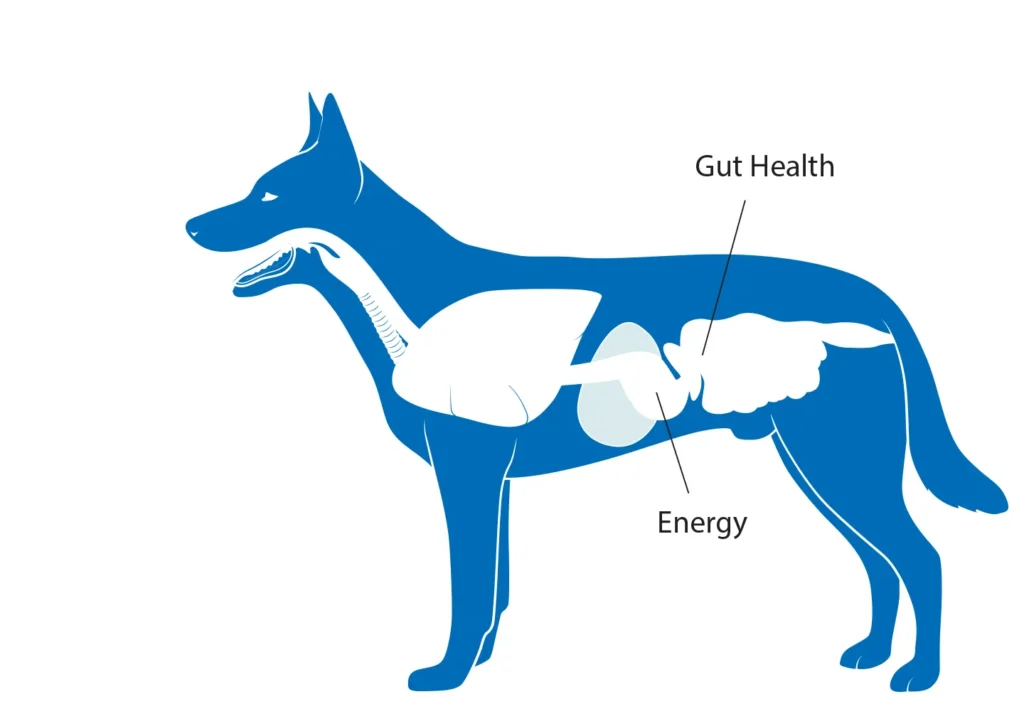Sound dog nutrition is critical to promoting your pet’s wellbeing and, from nose to tail, key nutrients help support a dog’s or cat’s growth and structure, body systems and metabolism. A “complete and balanced” pet food recipe will contain the vitamins, minerals, essential fatty acids, and proteins and amino acids considered essential to these processes.
However, what are the nutrients required for complete and balanced dog nutrition and how do they support your pet’s health? Read below to learn more about the nutrients categorized as essential to dogs by the Association of American Feed Control Officials, as well as other important nutrients, and some of their main functions. Want to learn more about cats? Our blog post helps explain some of the distinct differences between a dog’s and cat’s nutritional need. Sources are available here.
Fat-Soluble Vitamins
Veterinary nutritionists have identified a diverse range of essential vitamins that may be provided through food ingredients and supplemental form in a pet food recipe. Fat-soluble vitamins can be stored in the body’s fatty tissue and liver. Some of the main functions of these vitamins include:
Vitamin A
Vitamin A is essential for cell development, growth, healthy vision and immune function.
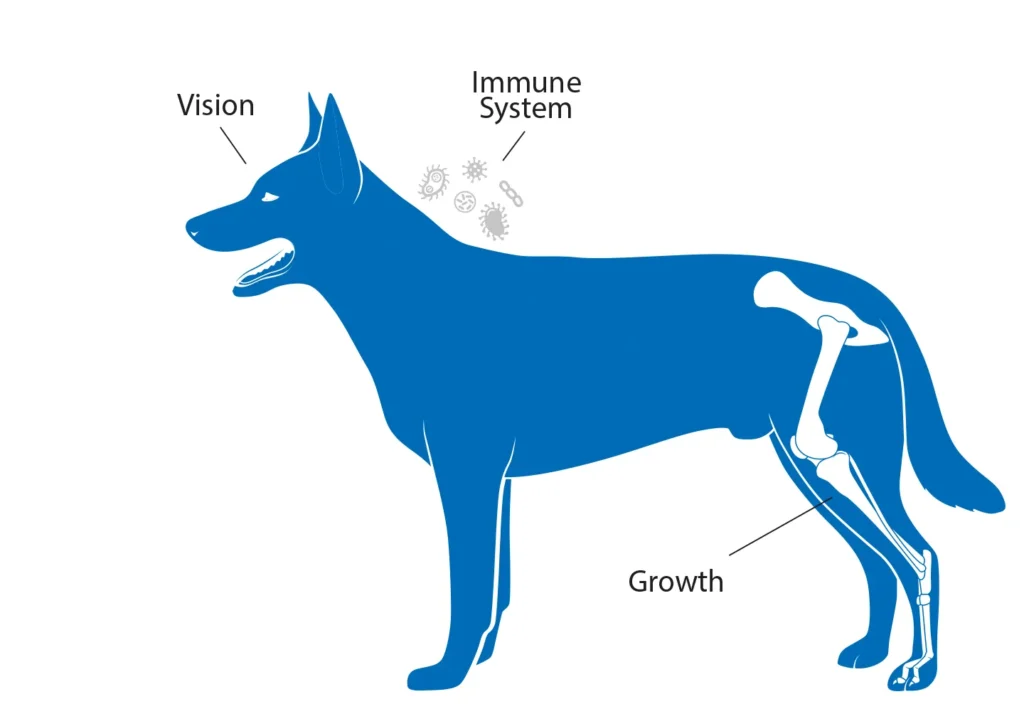
Cholecalciferol (Vitamin D3)
Cholecalciferol (Vitamin D3) supports calcium metabolism and skeletal health.
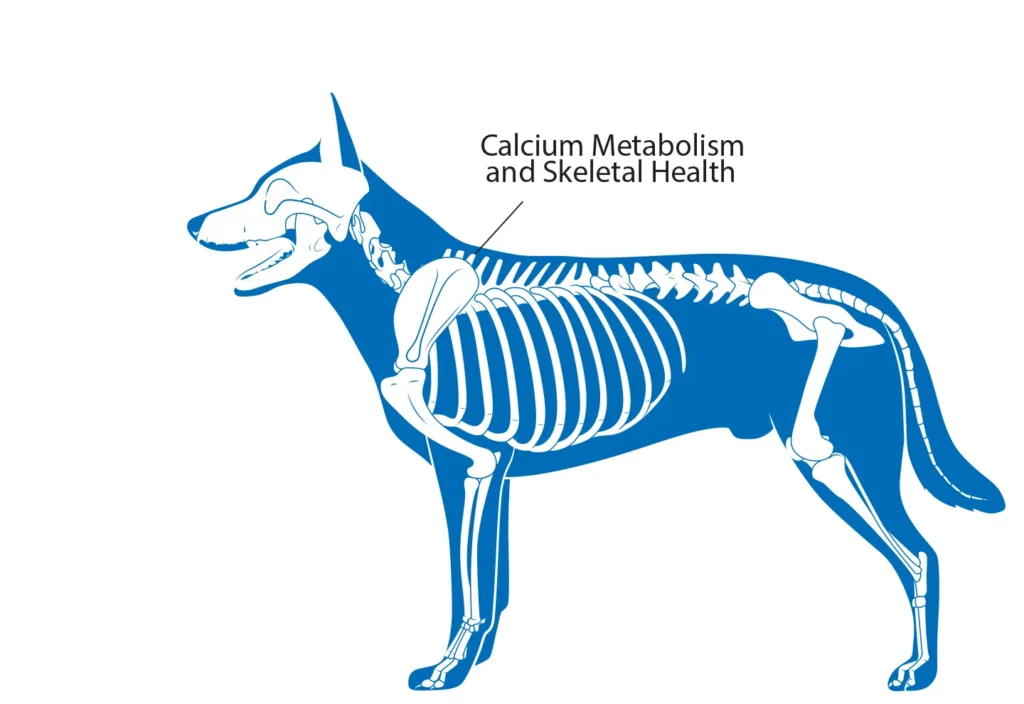
Vitamin E
Vitamin E (alpha-tocopherol) serves as a natural antioxidant, which scavenges free radicals, supports the immune system and a healthy skin and coat.
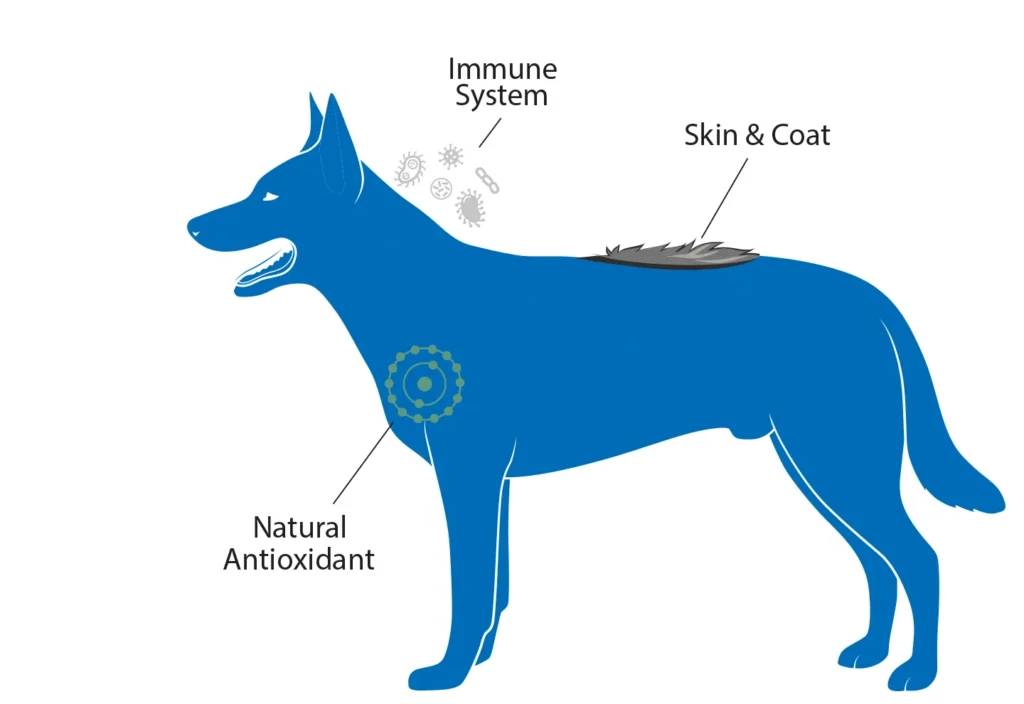
Vitamin K
Vitamin K is essential for the protein synthesis involved in blood clotting and bone formation.
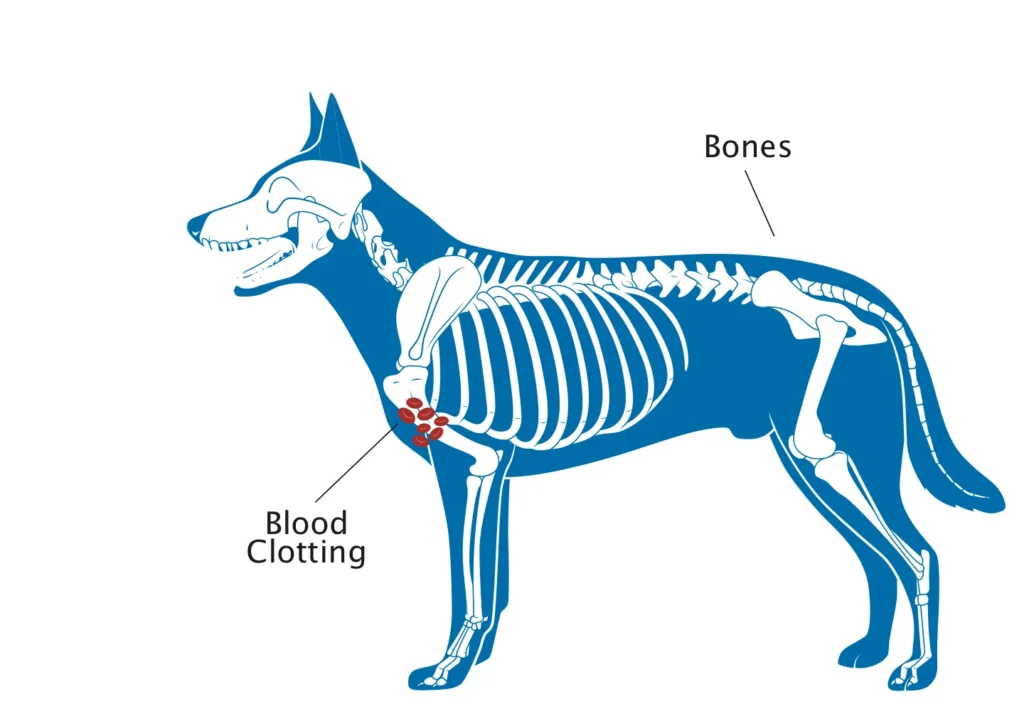

Water-Soluble Vitamins
Water-soluble vitamins are readily transported and soluble in water and/or blood.
Many of these vitamins (marked with an asterisk and using the same infographic) are critical to the process of converting fats, proteins and carbohydrates into energy, known as energy metabolism, while also supporting other specific cellular functions.
*Thiamine (Vitamin B1)
Thiamine plays a role in energy metabolism and nerve tissue maintenance and growth.
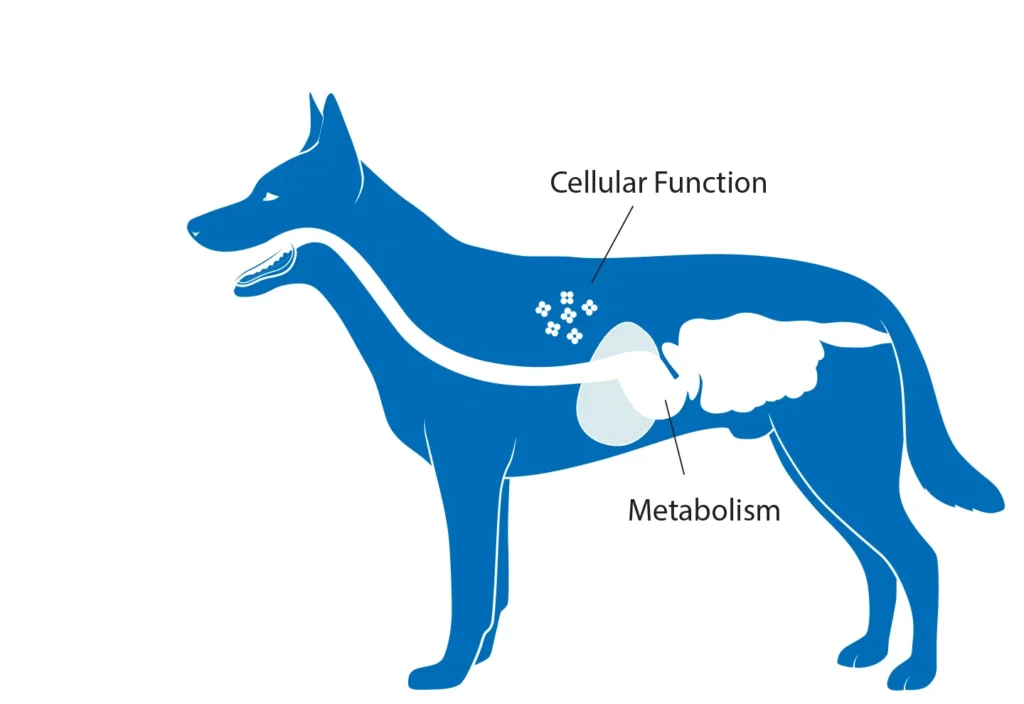
*Riboflavin (Vitamin B2)
Riboflavin supports the process of releasing energy from food.

*Niacin (Vitamin B3)
Niacin is a component of the enzymes necessary for metabolizing fats, protein and carbohydrates.

*Pantothenic Acid (Vitamin B5)
Pantothenic acid is a necessary component in metabolizing fats and carbohydrates into energy, as well as protein metabolism and synthesis.

*Pyridoxine (Vitamin B6)
Pyridoxine serves as a coenzyme in the metabolism of energy sources.

*Folic Acid (Vitamin B9)
Folic acid is necessary in the metabolism of amino acids and proteins, and supports cell membranes.

*Vitamin B12 (less commonly Cobalamin)
Vitamin B12 supports the metabolism of fatty acids and proteins.

*Biotin
Biotin is an essential cofactor within the metabolic process.

*Choline
Choline is important in fat metabolism, neurotransmission and liver function.

Ascorbic Acid (Vitamin C)
Ascorbic Acid (Vitamin C), while not an essential vitamin, helps support your dog’s healthy immune system, joints and cartilage.
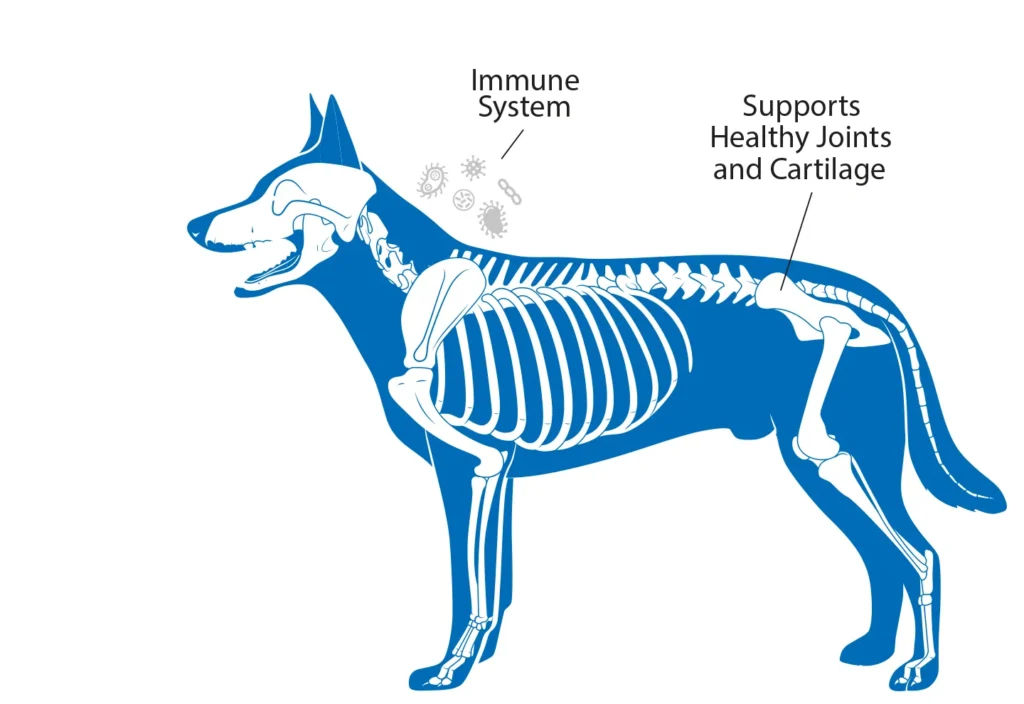

Minerals
Essential minerals for dogs can be divided into two separate categories based on their concentrations in the body. The largest amounts are of the macrominerals, while the trace minerals can sometimes be in very small amounts. Minerals are present in all food ingredients, but are sometimes added via specialized ingredients to be sure your pet is provided with the proper balance. Some of the main functions of these minerals include:
Calcium (Ca), Phosphorus (P)
The core roles of calcium and phosphorus are to work together in the body to support bone development. The two minerals also support cell conduction, such as nerve impulse transmission and muscular contraction.
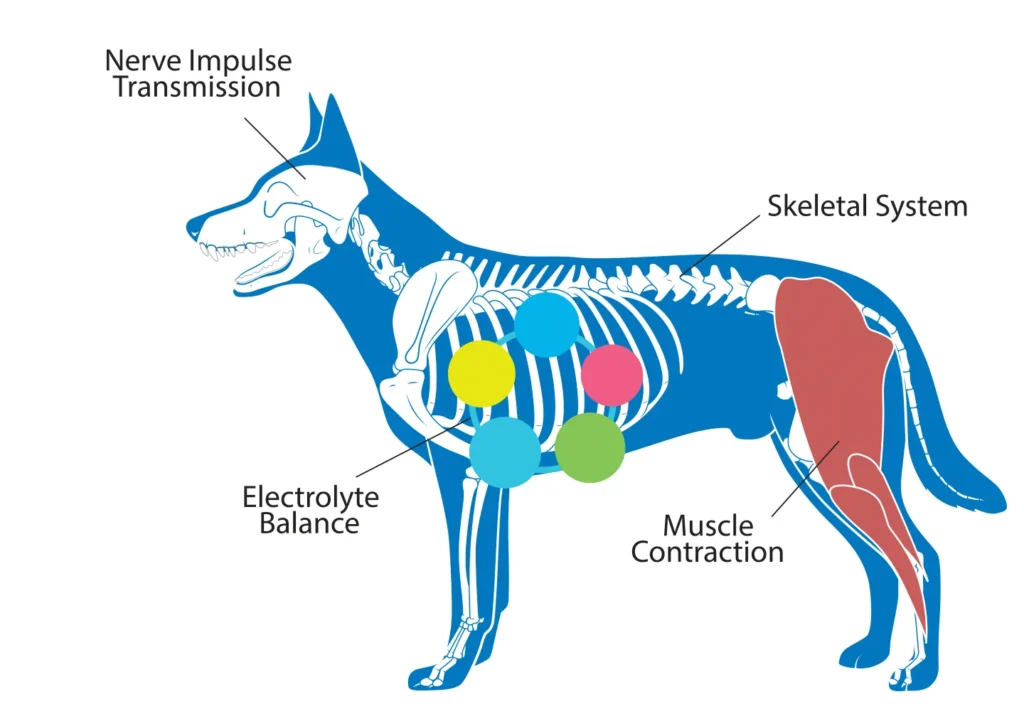
Sodium (Na)
Sodium and chloride both play a key role in maintaining the balance of fluid in cells, which impacts blood pressure and kidney function.
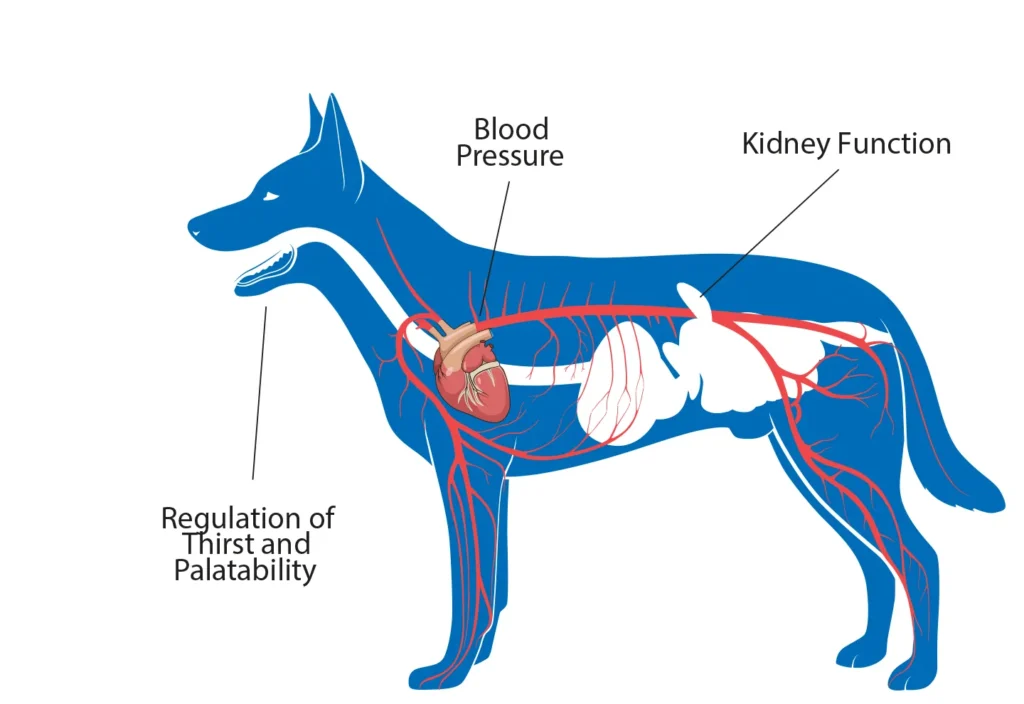
Magnesium (Mg)
Magnesium supports an electrolyte balance inside cells and bone structure integrity.
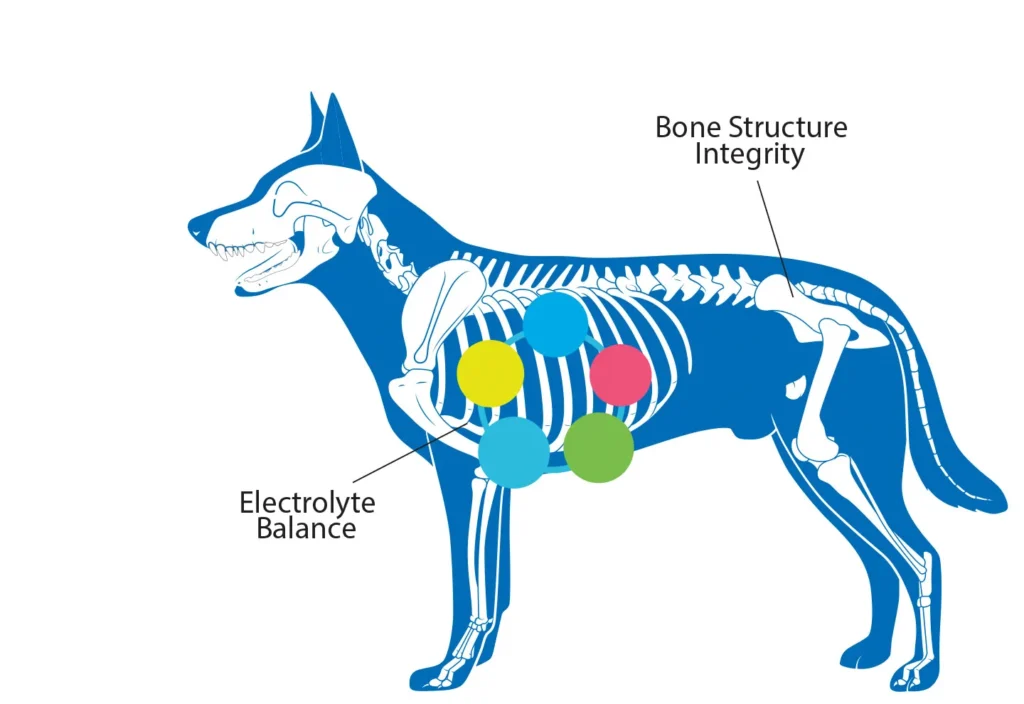
Potassium (K)
Potassium serves many functions and is the eighth most abundant nutrient in the body. Its most important functions include helping maintain the electrolyte balance in cells and its involvement in nerve transmission.
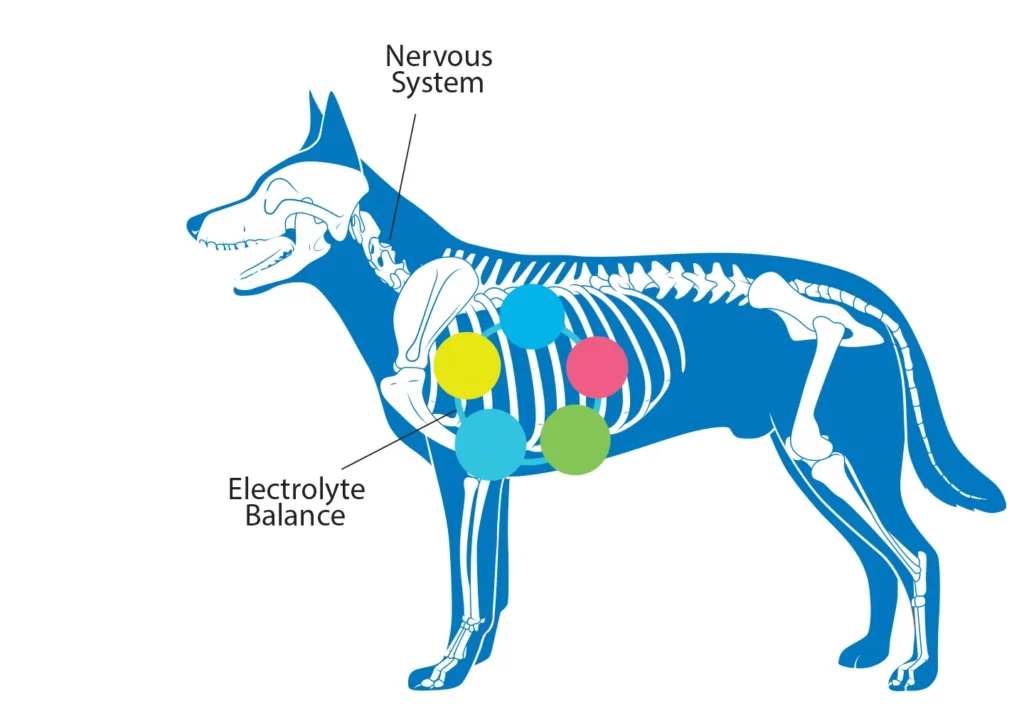
Chloride (Cl)
Chloride works in balance with both sodium and potassium to support the balance of fluid in cells and plays an important role in supporting growing puppies.
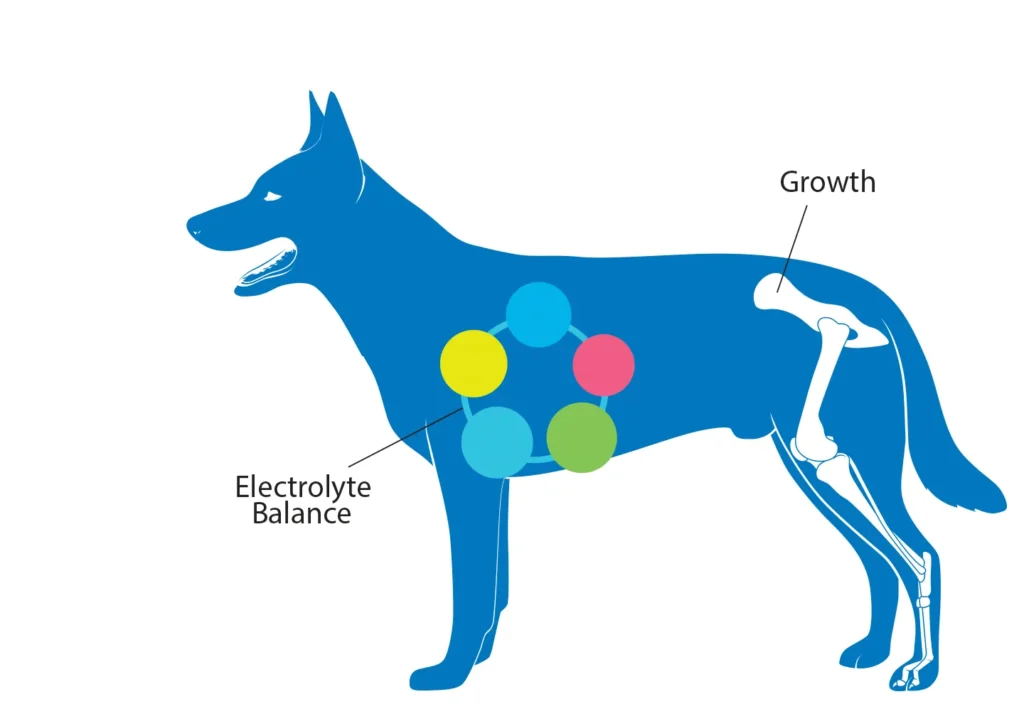
Iron (Fe), Zinc (Zn), Manganese (Mn), Iodine (I), Selenium (Se), and Copper (Cu)
These are trace minerals which are required in very small amounts.
Iron: Supports the synthesis of hemoglobin (red blood cells) and myoglobin (muscle cells), and is important in energy metabolism.
Zinc: Supports skin integrity.
Manganese: Essential to energy metabolism and supports healthy bones.
Iodine: Supports thyroid function, which is key in thermoregulation (helps your dog maintain its internal temperature).
Selenium: Serves as an antioxidant inside cells and works in tandem with Iodine to support thyroid function.
Copper: Supports coat color.
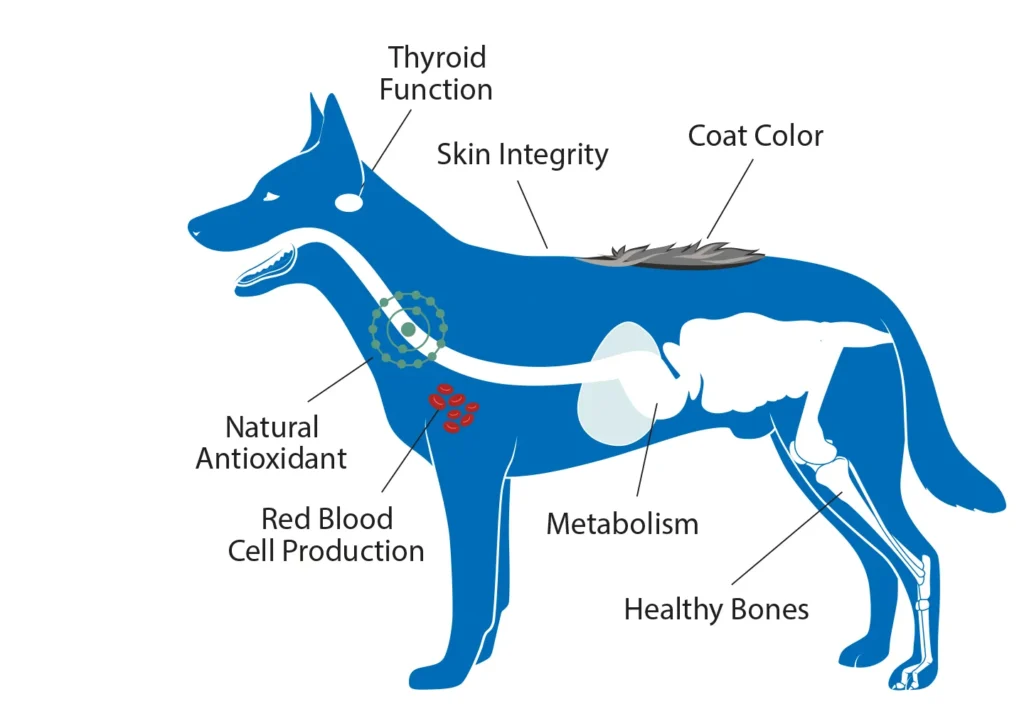

Protein & Amino Acids
Proteins are made up of amino acids, which build and maintain structures in the body. Protein sources will deliver the amino acids that help a pet build and maintain its muscles, bones, blood, organs, and skin and coat.
Without the proper levels of the essential amino acids, the synthesis of proteins is impaired. For growing puppies, this can result in reduced growth. Adult dogs need essential amino acids to help support all normal healthy systems, including the immune system. The AAFCO requirements include:
- Arginine (Arg)
- Histidine (His)
- Isoleucine (Ile)
- Leucine (Leu)
- Lysine (Lys)
- Methionine (Met) and Methionine-cysteine
- Phenylalanine (Phe) and Phenylalanine-tyrosine
- Threonine (Thr)
- Tryptophan (Trp)
- Valine (Val)
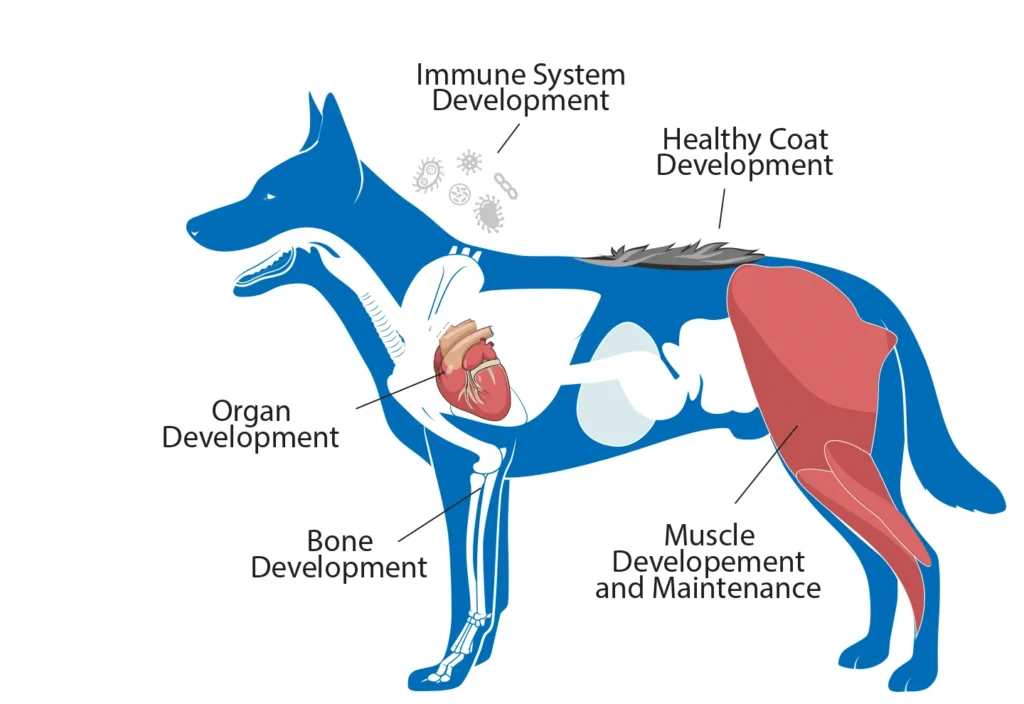
Fats
Fats are a class of macronutrients, made up of fatty acids, including essential fatty acids (EFAs) which cannot be synthesized by the body and must be obtained from food. Fatty acids are the most concentrated sources of energy for the body.
Because fatty acids are part of every cell in the body, they are important to every structure. EFAs have key functions in the immune and visual systems, and their most visible role is in supporting a healthy skin and coat.
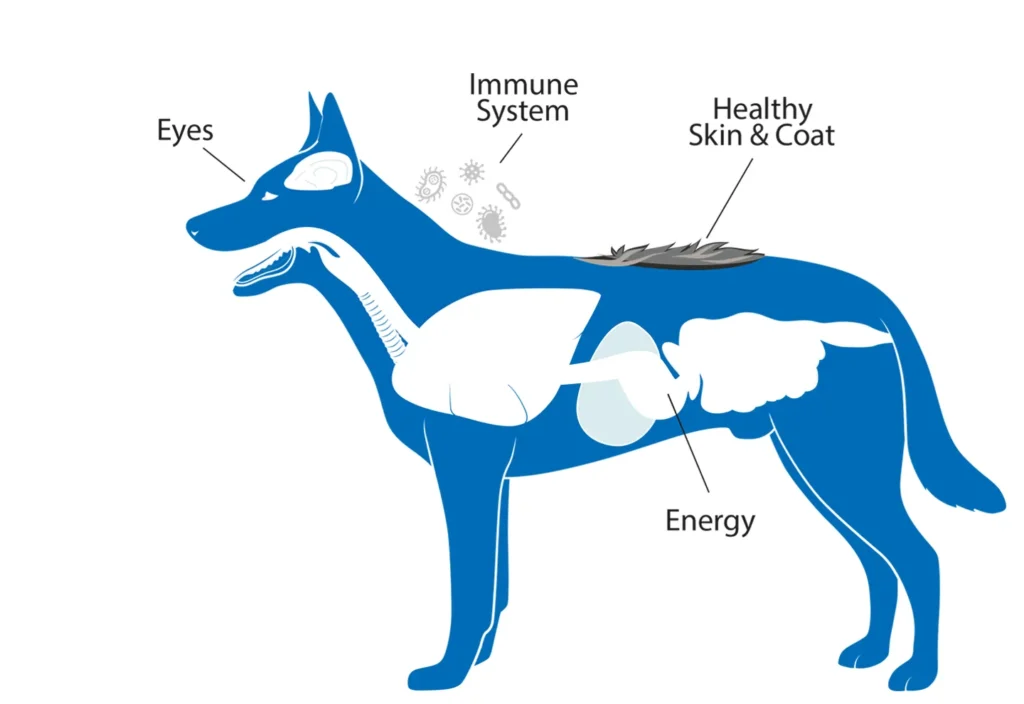
Carbohydrates
While carbohydrates are not categorized as essential nutrients in the Association of American Feed Control Officials (AAFCO) nutrient profiles, they have important roles in nutrition and the function of the body. This macronutrient class can support pet health by providing a readily available energy source for your dog and sparing protein to support other bodily functions.
Carbohydrates also contain the class of nutrients known as dietary fibers. Dietary fibers are vital for the support of a healthy gut microbiome and thus healthy digestion of nutrients, and they encourage the movement of waste materials out of the body.
